Governance and Finance
Corporate governance today is about more than just making profits for shareholders. It now aims to balance the needs of all stakeholders-employees, investors, creditors, and business partners. Good governance helps companies run better, attract talent, gain customer trust, and lower financial costs. Conversely, poor governance can lead to scandals, job losses, and broken contracts.
The “Governance and Finance” research group studies how governance works in modern financial markets. One of the focuses is on how firms choose, motivate, and keep talented leaders, especially CEOs, since exemplary leadership is key to company success.
The group is also interested in investigating how changes in financial markets, like the rise of big shareholders, activist investors, or even creditors, affect company decisions. The goal is to understand how different players and institutions influence company behavior and what that means for the future of business.
Research Cluster
Financial Resilience and RegulationYour contact

- Department Financial Markets
Refereed Publications
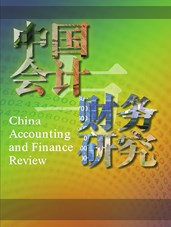
Evolvement of China-related Topics in Academic Accounting Research: Machine Learning Evidence
in: China Accounting and Finance Review, No. 4, 2020
Abstract
This study employs an unsupervised machine learning approach to explore the evolution of accounting research. We are particularly interested in exploring why international researchers and audiences are interested in China-related issues; what kinds of research topics related to China are mainly investigated in globally recognised journals; and what patterns and emerging topics can be explored by comprehensively analysing a big sample. Using a training sample of 23,220 articles from 46 accounting journals over the period 1980 to 2018, we first identify the optimal number of accounting research topics; the dynamic patterns of these accounting research topics are explored on the basis of 46 accounting journals to show changes in the focus of accounting research. Further, we collect articles related to Chinese accounting research from 18 accounting journals, eight finance journals, and eight management journals over the period 1980 to 2018. We objectively identify China-related accounting research topics and map them to the stages of China’s economic development. We attempt to identify the China-related issues global researchers are interested in and whether accounting research reflects the economic context. We use HistCite TM to generate a citation map along a timeline to illustrate the connections between topics. The citation clusters demonstrate “tribalism” phenomena in accounting research. The topics related to Chinese accounting research conducted by international accounting researchers reveal that accounting changes mirror economic reforms. Our findings indicate that accounting research is embedded in the economic context.
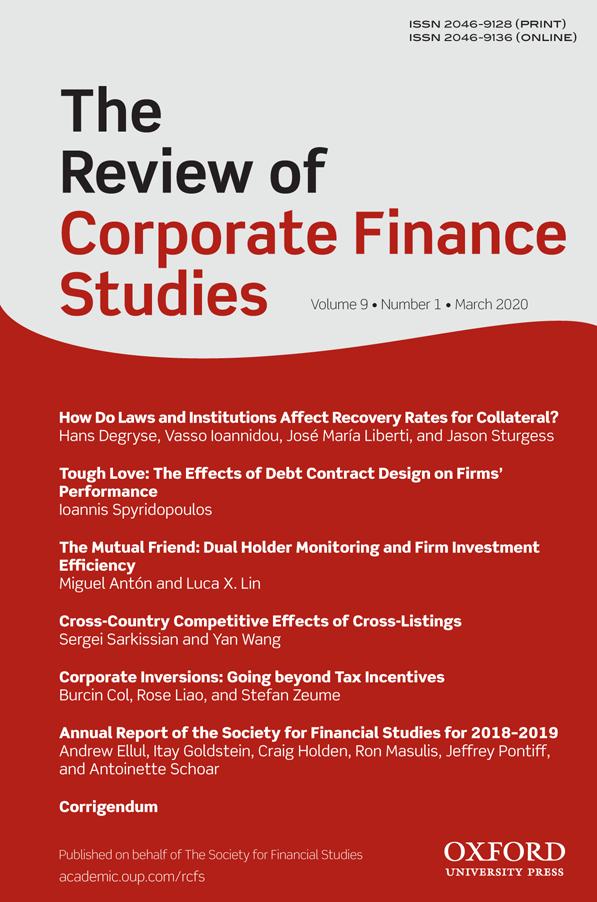
Tournament Incentives and Acquisition Performance
in: Review of Corporate Finance Studies, No. 2, 2020
Abstract
This paper examines the impact of promotion-based tournament incentives on corporate acquisition performance. Measuring tournament incentives as the compensation ratio between the CEO and other senior executives, we show that acquirers with greater tournament incentives experience lower announcement returns. Further analysis shows that the negative effect is driven by the risk-seeking behavior of senior executives induced by tournament incentives. Our results are robust to alternative identification strategies. Our evidence highlights that senior executives, in addition to the CEO, play an influential role in acquisition decisions.

Investor Relations and IPO Performance
in: Review of Accounting Studies, No. 2, 2020
Abstract
We analyze the value of investor relations (IR) strategies to IPO firms. We find that firms that are less visible and have inexperienced management tend to hire IR consultants prior to the issue date. IR consultants help create positive news coverage before an IPO, as reflected in a more optimistic tone of published media. Their presence is associated with higher underpricing at the IPO date but with lower long-run returns. IR-backed IPOs also exhibit disproportionately higher insider-related agency problems, as IR-induced higher underpricing tends to occur primarily in IPOs where underwriter and venture capitalist agency conflicts are more severe. These findings suggest that the IR programs of IPO firm are mostly short-term oriented and facilitate the ulterior motives of some insiders (underwriters and venture capitalists) targeting higher first-day returns.
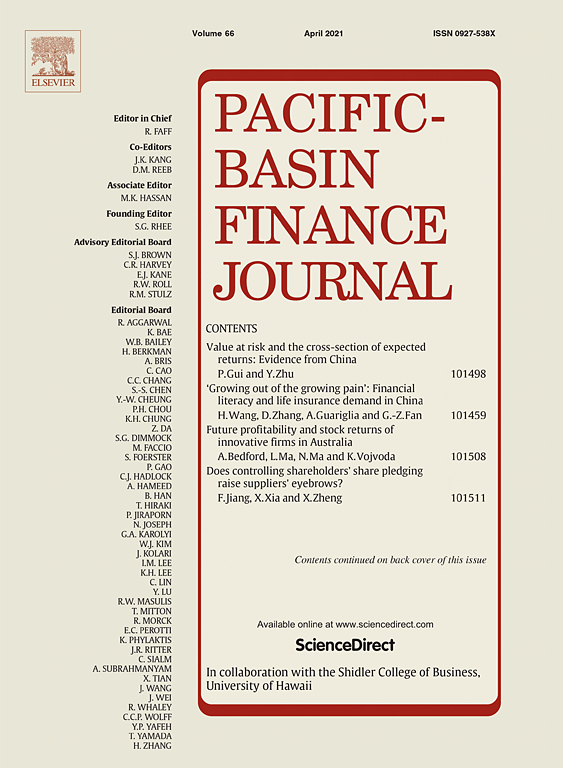
Why are some Chinese Firms Failing in the US Capital Markets? A Machine Learning Approach
in: Pacific-Basin Finance Journal, June 2020
Abstract
We study the market performance of Chinese companies listed in the U.S. stock exchanges using machine learning methods. Predicting the market performance of U.S. listed Chinese firms is a challenging task due to the scarcity of data and the large set of unknown predictors involved in the process. We examine the market performance from three different angles: the underpricing (or short-term market phenomena), the post-issuance stock underperformance (or long-term market phenomena), and the regulatory delistings (IPO failure risk). Using machine learning techniques that can better handle various data problems, we improve on the predictive power of traditional estimations, such as OLS and logit. Our predictive model highlights some novel findings: failed Chinese companies have chosen unreliable U.S. intermediaries when going public, and they tend to suffer from more severe owners-related agency problems.
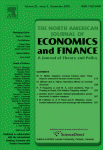
Tornado Activity, House Price and Stock Returns
in: North American Journal of Economics and Finance, April 2020
Abstract
In this paper we investigate the effects of tornado activity on house prices and stock returns in the US. First, using geo-referenced and metropolitan statistical area (MSA)-level data, we find tornado activity to be responsible for a significant drop in house prices. Spillover tornado effects between adjacent MSAs are also detected. Furthermore, our granular analysis provides evidence of tornadoes having a negative impact on stock returns. However, only two sectors seem to contribute to such a negative effect (i.e., consumer discretionary and telecommunications). In a macro-analysis, which relies on aggregate data for the South, West, Midwest and Northeast US regions, we then show that tornado activity generates a significant drop in house prices only in the South and Midwest. In these regions, tornadoes are also responsible for a drop in income. Tornado activity is finally found to positively (negatively) affect stock returns in the Midwest (South). If different sectors are examined, a more heterogeneous picture emerges.
Working Papers
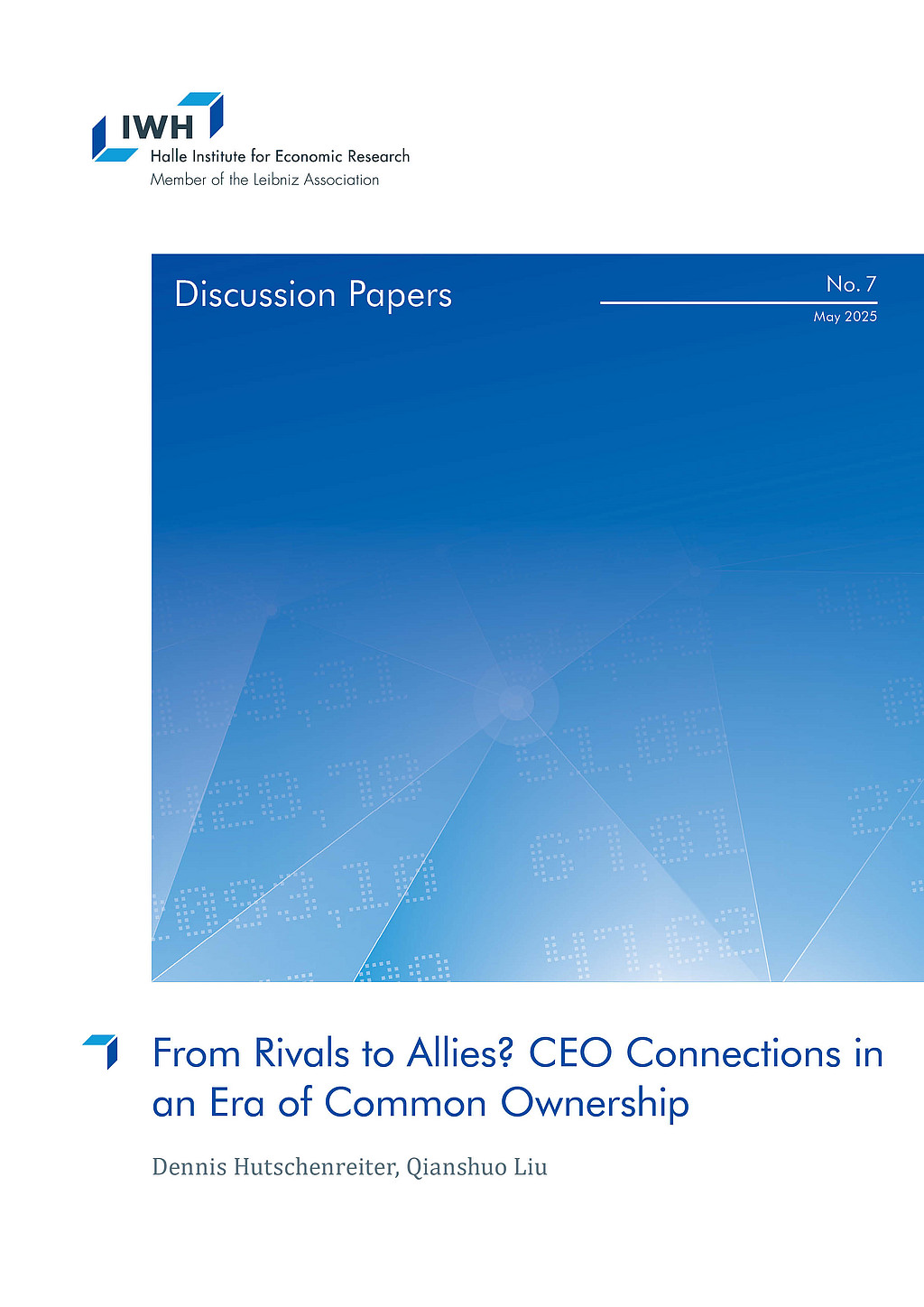
From Rivals to Allies? CEO Connections in an Era of Common Ownership
in: IWH Discussion Papers, No. 7, 2025
Abstract
<p>Institutional common ownership of firm pairs in the same industry increases the likelihood of a preexisting social connection among their CEOs. We establish this relationship using a quasi-natural experiment that exploits institutional mergers combined with firms’ hiring events and detailed information on CEO biographies. In addition, for peer firms, gaining a CEO connection from a hiring firm’s CEO appointment correlates with higher returns on assets, stock market returns, and decreasing product similarity between companies. We find evidence consistent with common owners allocating CEO connections to shape managerial decisionmaking and increase portfolio firms’ performance.</p>
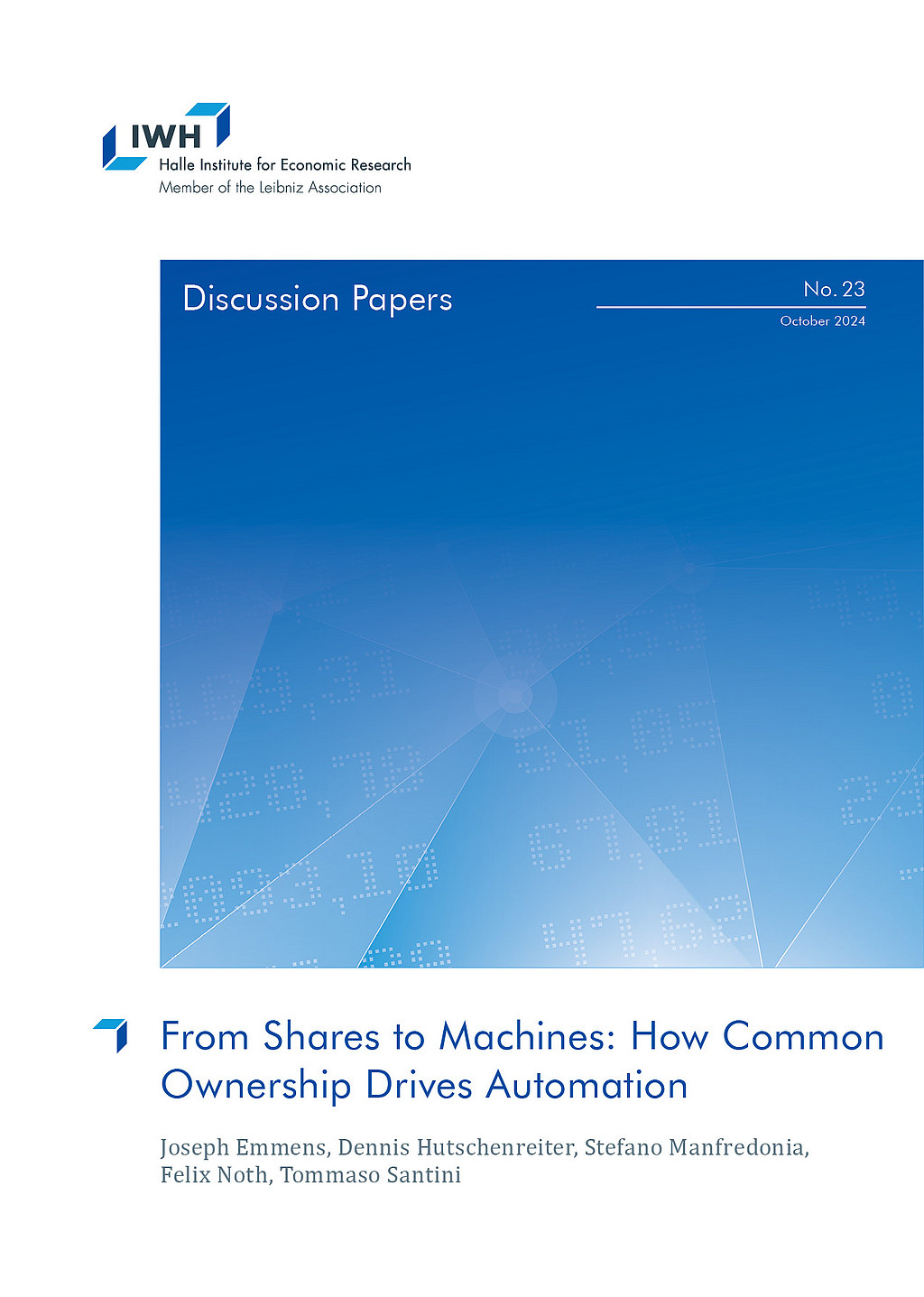
From Shares to Machines: How Common Ownership Drives Automation
in: IWH Discussion Papers, No. 23, 2024
read publication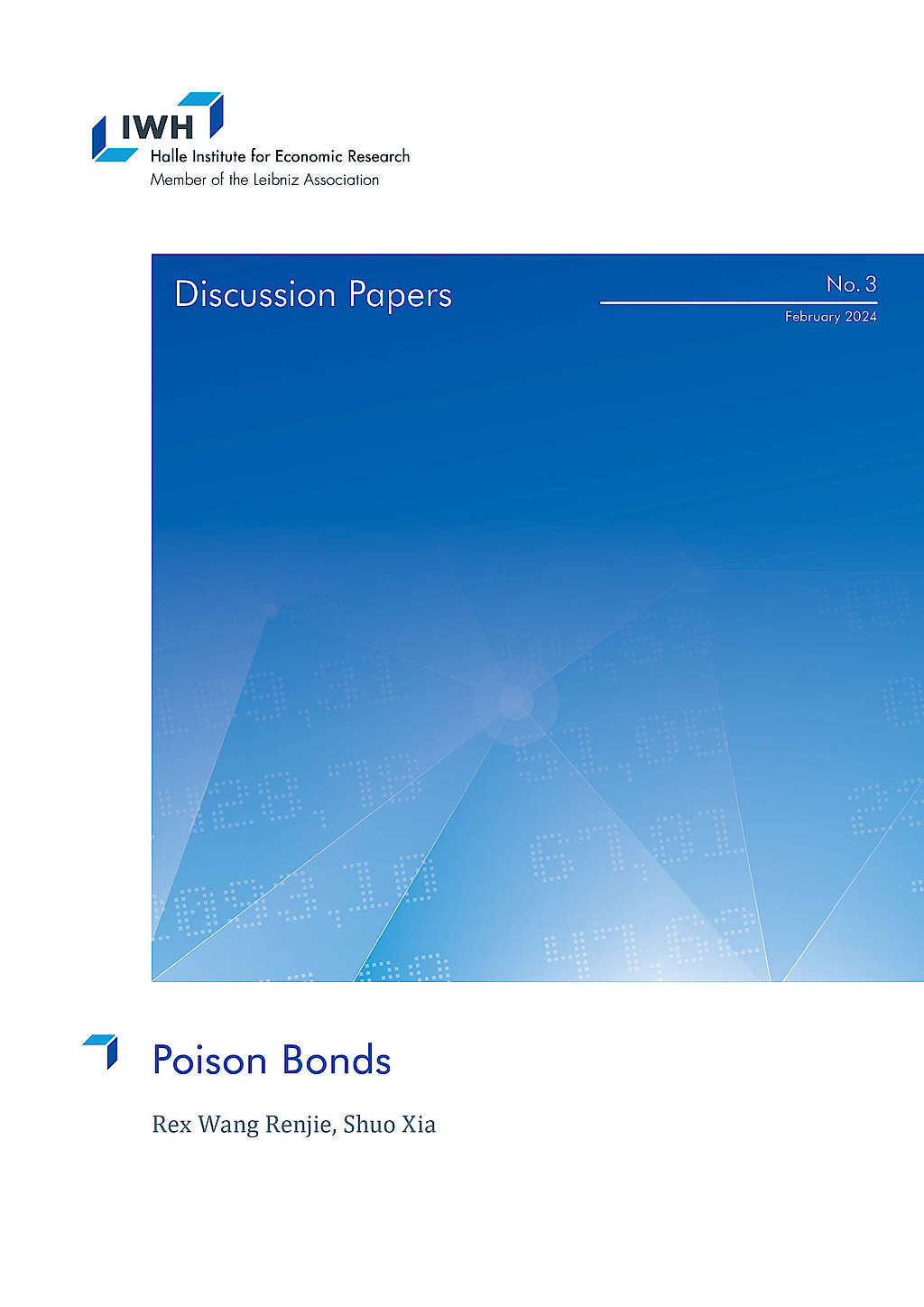
Poison Bonds
in: IWH Discussion Papers, No. 3, 2024
Abstract
This paper documents the rise of “poison bonds”, which are corporate bonds that allow bondholders to demand immediate repayment in a change-of-control event. The share of poison bonds among new issues has grown substantially in recent years, from below 20% in the 90s to over 60% since mid-2000s. This increase is predominantly driven by investment-grade issues. We provide causal evidence that the pressure to eliminate poison pills has led firms to issue poison bonds as an alternative. Our analysis suggests that this practice entrenches incumbent managers and destroys shareholder value. Holding a portfolio of firms that remove poison pills but promptly issue poison bonds results in negative abnormal returns of −7.3% per year. Our findings have important implications for the agency theory of debt: (i) more debt may not discipline the management; and (ii) even without financial distress, managerial entrenchment can lead to agency conflicts between shareholders and creditors.
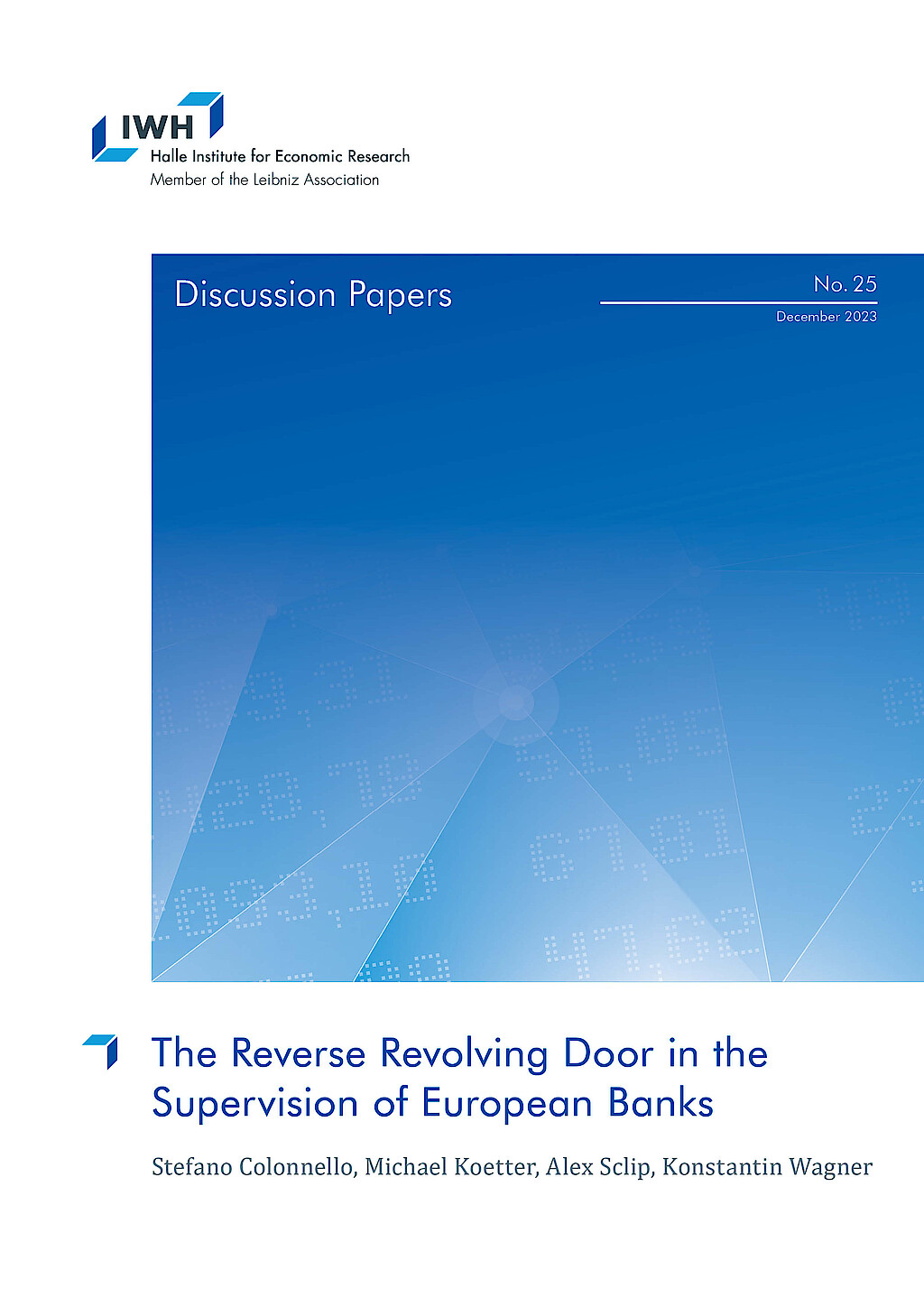
The Reverse Revolving Door in the Supervision of European Banks
in: IWH Discussion Papers, No. 25, 2023
Abstract
We show that around one third of executive directors on the boards of national supervisory authorities (NSA) in European banking have an employment history in the financial industry. The appointment of executives without a finance background associates with negative valuation effects. Appointments of former bankers, in turn, spark positive stock market reactions. This „proximity premium“ of supervised banks is a more likely driver of positive valuation effects than superior financial expertise or intrinsic skills of former executives from the financial industry. Prior to the inception of the European Single Supervisory Mechanism, the presence of former financial industry executives on the board of NSA associates with lower regulatory capital and faster growth of banks, pointing to a more lenient supervisory style.

Poison Bonds
in: SSRN Discussion Paper, 2023
Abstract
This paper documents the rise of "poison bonds", which are corporate bonds that allow bondholders to demand immediate repayment in a change-of-control event. The share of poison bonds among new issues has grown substantially in recent years, from below 20% in the 90s to over 60% after 2005. This increase is predominantly driven by investment-grade issues. We provide causal evidence that the pressure to eliminate poison pills has led firms to issue poison bonds as an alternative. Further analyses suggest that this practice entrenches incumbent managers, coincidentally benefits bondholders, but destroys shareholder value. Holding a portfolio of firms that remove poison pills but promptly issue poison bonds results in negative abnormal returns of -7.3% per year. Our findings have important implications for understanding the agency benefits and costs of debt: (1) more debt does not necessarily discipline the management; and (2) even without financial distress, managerial entrenchment can lead to conflicts between shareholders and creditors.










